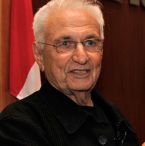Related
Paris Post-Brexit: Seven Startling Skyscrapers Will Rise In La Defense after 40 Years
Skyscrapers will rise in La Defense district of Paris on 2021. This project is the latest investment of the country after Brexit issues. It actually attempts with the superstructures to lure more investors back in the place.
According to Dezeen, French presidential candidate Emmanuel Macron announced the skyscraper project. While French architects Jean Nouvel and British designer Norman Foster will be handling the construction of the buildings.
The seven skyscrapers are part of La Defense district "Tired of the Fog? Try the frogs!" campaign. Trinity, M2, Hekla, Sisters, Air 2 and Hermitage are the names of each; the named-towers will supposedly support the transfer of many "bankers, academics, and researchers" that might be ousted from London due to Brexit effect.
"Paris La Défense is a turnkey destination with a thriving economic ecosystem in the heart of Europe, offering a level of culture, quality of life and unbeatable dynamism: Essential factors to consider for relocation," said the director of the organization Defacto Marie-Célie Guillaume. She is highlighted further that the place will be the anchor of "thousand talents and professionals" searching for a new home in Europe.
On the other hand, Independent reported more interesting details of the new skyscrapers. It said that only after 40 years that Paris will welcome once again constructions taller than 100m. The seven architectures will be covering 375,000 sqm of office space. It is similar to 50 football fields.
The big move marks the most aggressive action in Paris today to court more jobs for its people. Hence, it likewise just revised its taxing rules to give more adjustments on the transferring international businesses.
Lastly, HSBC is yet the first to confirm its leap on Paris La Defense district. It will have 1,000 jobs ready for French people upon its move. Although other banks are still unsure because they aren't sure about the transfer's success, French labor code, language barrier, and high taxes are the biggest things in question.
More in Architecture
IN CASE YOU MISSED














